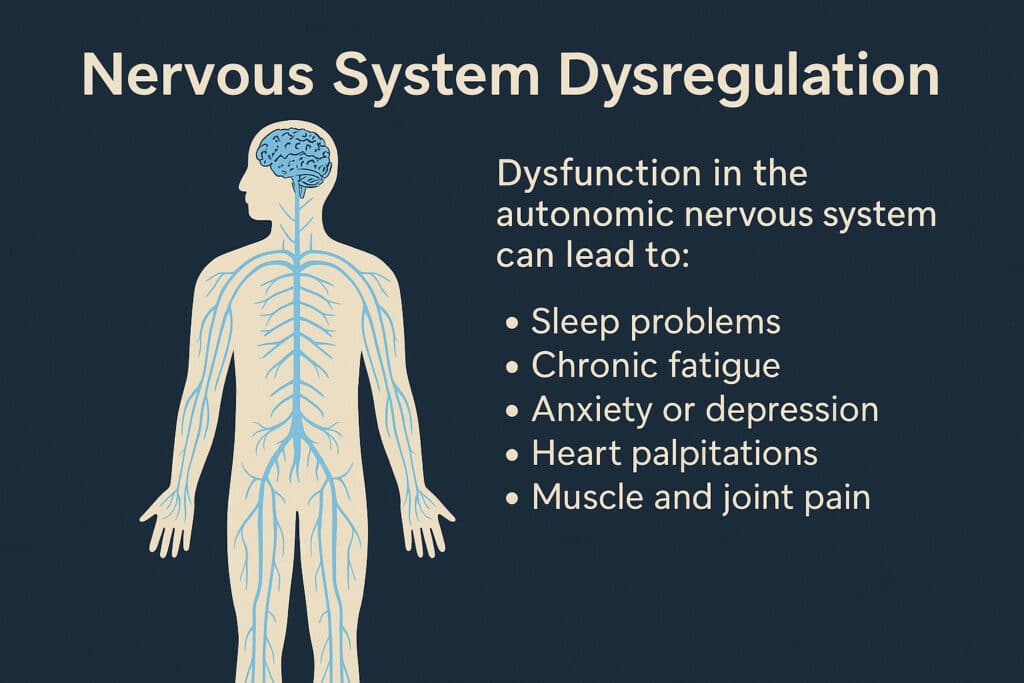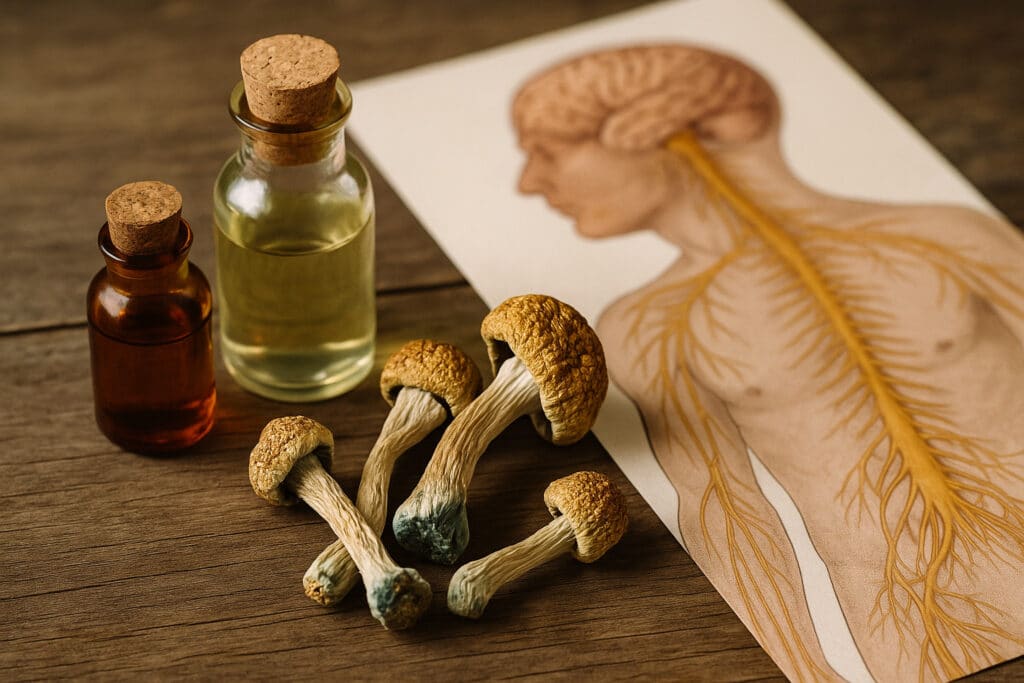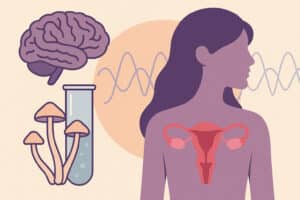Nervous system dysregulation can cause both physical and mental symptoms. Research is increasingly investigating whether psychedelics, such as psilocybin or LSD, could play a role in this. But what does science say about this, and what should you consider?
Note: this article is intended for informational purposes only and does not replace medical advice. Always consult a doctor or specialist if you have symptoms.
What does nervous system dysregulation mean?
The nervous system is a complex network that sends messages between the brain, organs, and muscles. It regulates vital functions such as breathing, heart rate, and response to stimuli.
When the nervous system becomes imbalanced, we speak of dysregulation. This can lead to symptoms such as:
- Sleep problems
- Chronic fatigue
- Anxiety or depressive feelings
- Heart palpitations or fluctuating blood pressure
- Muscle and joint pain
An important role is played by the autonomic nervous system, which consists of:
- The sympathetic nervous system (fight-or-flight response, stress response)
- The parasympathetic nervous system (rest and recovery)
More background information can be found at Cleveland Clinic – Nervous System.
Possible causes of dysregulation
There are various factors that can throw the nervous system out of balance, such as:
- Chronic stress
- Traumatic experiences (e.g., PTSD)
- Autoimmune diseases or chronic inflammation
- Hormonal imbalance
- Long Covid and other post-viral symptoms
Research shows that a dysregulated nervous system can worsen both physical symptoms (e.g., migraines, cardiovascular problems) and mental symptoms (anxiety disorders, depression, OCD).

Psychedelics and their possible effects
Psychedelics are substances that influence consciousness and perception. Examples include psilocybin (from magic mushrooms and truffles), LSD, and DMT. They work primarily through serotonin receptors (5-HT2A) in the brain, which are involved in mood, emotion, and sensory processing.
Influence on Neuroplasticity
Preliminary research shows that psychedelics may promote neuroplasticity – the brain’s ability to form new connections. This could potentially help break through rigid stress and anxiety patterns that arise from nervous system dysregulation.
See: Psychedelics and Neural Plasticity – Journal of Neuroscience, 2022.
What do we know so far?
- Most studies are small-scale or conducted on people with other conditions (such as depression or PTSD).
- There is still no large-scale clinical evidence that psychedelics directly help with nervous system dysregulation.
- Potential benefits lie in stimulating recovery mechanisms in the brain and breaking through chronic stress patterns.
- Risks exist as well: psychedelics can cause side effects, such as anxiety, paranoia, heart palpitations, or worsening of psychological symptoms.

Important considerations
- Don’t experiment on your own: psychedelics are powerful substances and unsuitable for self-treatment.
- Guidance is crucial: research always takes place in controlled, therapeutic settings under professional supervision.
- Individual differences: not everyone reacts the same way; in some people, symptoms may actually worsen.
A final consideration
Initial research results show that psychedelics may potentially play a role in supporting the nervous system. However, it’s still too early to draw clear conclusions from this. More scientific evidence is needed before these substances can have a permanent place within regular healthcare.
Do you have symptoms that could be related to a dysregulated nervous system? Always discuss this with a doctor or treating specialist. Psychedelics are not a ready-made solution and are not suitable for independent experimentation.
Curious about legal microdosing products and information? Check out our selection in the shop.
About the author
Mirjam Sprenger is a copywriter for Taaldomein. She primarily focuses on writing about health, nutrition, and supplements, with reliability and clarity of information being paramount.







